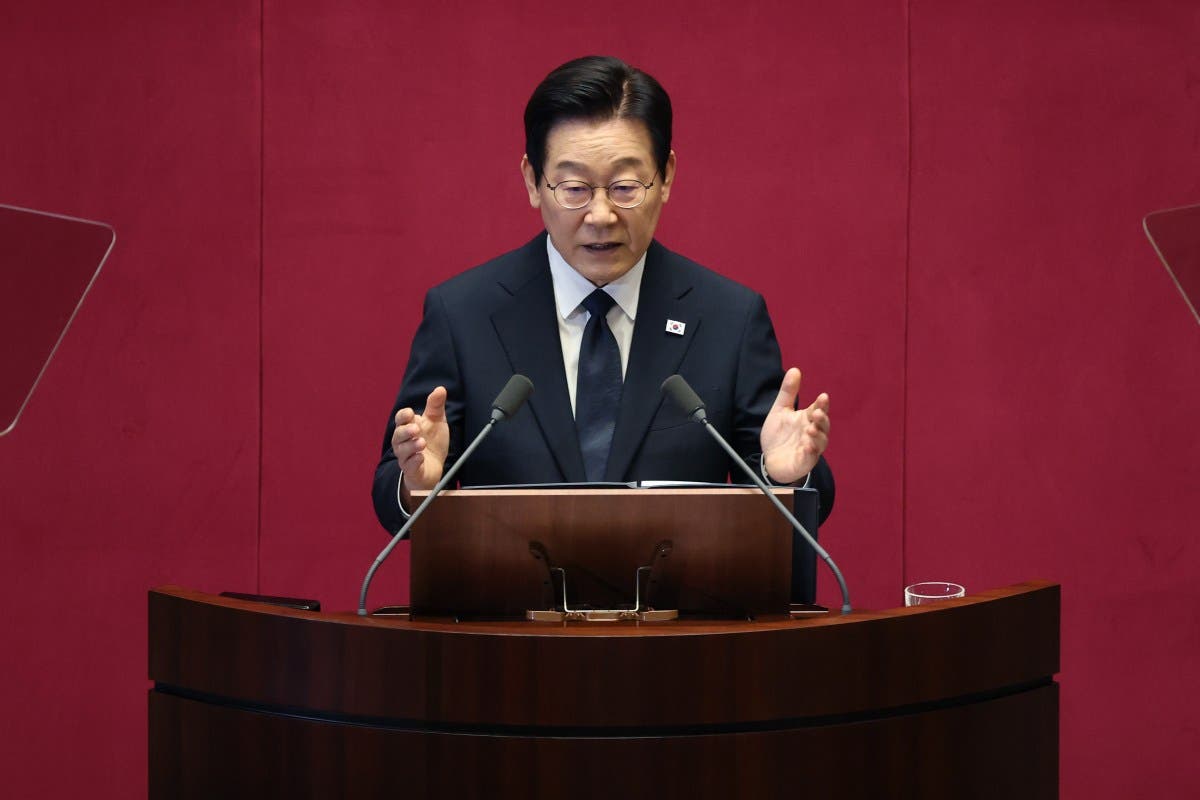Top Stories
South Korea’s Police Ordered to Combat Online Hate Speech NOW

UPDATE: South Korean President Lee Jae-myung has just announced a decisive crackdown on online hate speech, instructing police to take immediate action against rampant discriminatory behavior on social media. This urgent directive comes amidst rising anti-foreigner sentiment, particularly targeting Chinese nationals, as the nation grapples with significant demographic changes.
During a Cabinet meeting on October 31, 2023, Lee emphasized that hate speech and disinformation threaten democracy and the safety of citizens. “Acts such as distorting or manipulating facts, spreading racial hatred or discrimination—such false information is an act that threatens democracy,” he stated, labeling these offenses as crimes crossing the bounds of freedom of expression.
The backdrop to this announcement includes record levels of foreign nationals in South Korea, with a staggering 2.58 million individuals living in the country as of last year, representing approximately 5 percent of the population. These figures highlight heightened anxieties over demographic shifts in one of the world’s most homogenous societies.
Lee’s directive follows large-scale protests led by conservative groups against foreigners, particularly in the lead-up to the recent Asia-Pacific Economic Cooperation (APEC) summit held in Busan. The protests have sparked national discussions on the need for comprehensive anti-discrimination laws—something South Korea, alongside Japan, currently lacks among developed nations.
In a critical step towards enforcement, Lee has supported a proposal to allow for the immediate dismissal of civil servants found guilty of hate speech. This measure, championed by Personnel Management Minister Choi Dong-suk, aims to hold all senior officials accountable to the same standards as public officials.
During the meeting, Lee was questioned by Gender Equality Minister Won Min-kyung about the potential penalization of the head of the National Human Rights Commission, Ahn Chang-ho, who has faced backlash for anti-LGBTQ+ remarks. Lee affirmed that all government officials would be held responsible for their speech.
The response from international representatives has been swift. Dai Bing, the Chinese ambassador to South Korea, condemned the actions of far-right groups, stating that disinformation campaigns are damaging both bilateral relations and South Korea’s national image.
Looking ahead, Lee’s administration is pushing for parliamentary discussions on establishing a comprehensive anti-discrimination law, modeled after frameworks in Japan and Europe. He also advocates for the abolition of a clause in South Korea’s criminal defamation law that punishes factual statements, proposing that such issues be resolved through civil court instead.
The urgency of these developments cannot be overstated as South Korea navigates a complex social landscape influenced by rising anti-foreigner sentiments. As the police prepare to intensify their enforcement against online hate speech, all eyes will be on the government’s next steps in fostering a more inclusive society.
Stay tuned for ongoing updates as this situation evolves.
-

 Science4 weeks ago
Science4 weeks agoIROS 2025 to Showcase Cutting-Edge Robotics Innovations in China
-

 Lifestyle4 weeks ago
Lifestyle4 weeks agoStone Island’s Logo Worn by Extremists Sparks Brand Dilemma
-

 Health4 weeks ago
Health4 weeks agoStartup Liberate Bio Secures $31 Million for Next-Gen Therapies
-

 World4 weeks ago
World4 weeks agoBravo Company Veterans Honored with Bronze Medals After 56 Years
-

 Politics4 weeks ago
Politics4 weeks agoJudge Considers Dismissal of Chelsea Housing Case Citing AI Flaws
-

 Lifestyle4 weeks ago
Lifestyle4 weeks agoMary Morgan Jackson Crowned Little Miss National Peanut Festival 2025
-

 Health4 weeks ago
Health4 weeks agoTop Hyaluronic Acid Serums for Radiant Skin in 2025
-

 Science4 weeks ago
Science4 weeks agoArizona State University Transforms Programming Education Approach
-

 Sports4 weeks ago
Sports4 weeks agoYamamoto’s Mastery Leads Dodgers to 5-1 Victory in NLCS Game 2
-

 Science2 weeks ago
Science2 weeks agoUniversity of Hawaiʻi at Mānoa Joins $25.6M AI Initiative for Disaster Monitoring
-

 World4 weeks ago
World4 weeks agoHoneywell Predicts Record Demand for Business Jets Over Next Decade
-

 Top Stories4 weeks ago
Top Stories4 weeks agoIndonesia Suspends 27,000 Bank Accounts in Online Gambling Crackdown









